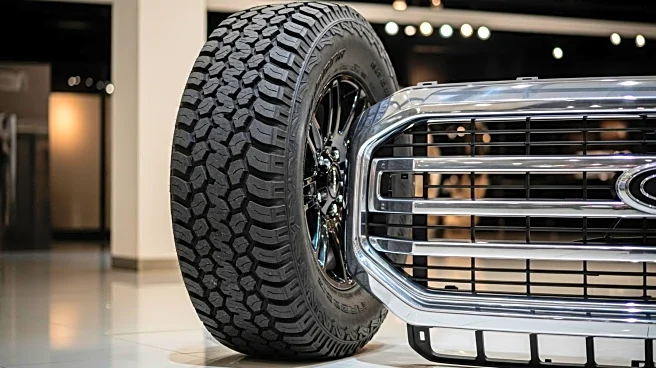What is the story about?
What's Happening?
Stellantis NV, the automotive company behind Jeep and Ram, is planning a substantial investment of approximately $10 billion in its U.S. operations. This move aims to strengthen its market presence, which is crucial for its profitability. The investment will support plant reopenings, workforce expansion, and the development of new models in states such as Illinois and Michigan. This strategic shift is led by Chief Executive Officer Antonio Filosa, who took over in May and is reassessing global investment priorities. The initiative marks a departure from the previous focus on cost-cutting and overseas expansion under former CEO Carlos Tavares. Stellantis is also considering new investments in Dodge and potentially reviving the Chrysler brand.
Why It's Important?
The investment underscores Stellantis's renewed focus on the U.S. market, where it faces stiff competition from General Motors and Ford. Jeep SUVs and Ram pickups are significant contributors to the company's profits, making the U.S. a critical market. The move also highlights the balancing act Stellantis faces as it maintains traditional brands while transitioning to electric vehicles. This investment could lead to job creation and economic growth in the states where the company plans to expand operations. It reflects a strategic pivot to reinforce its position in a competitive automotive landscape.
What's Next?
Stellantis is expected to announce up to $5 billion in new spending within weeks, adding to commitments made earlier this year. The company is preparing for a strategy update and capital markets day next year, which will further outline future investments. Discussions about new model development and brand revivals are ongoing, and plans may evolve. The automotive industry will be watching closely as Stellantis navigates the transition to electric vehicles while maintaining its traditional offerings.
Beyond the Headlines
The investment by Stellantis could have broader implications for the automotive industry, particularly in terms of employment and technological advancements. As the company shifts focus to electric vehicles, it may influence other automakers to accelerate their own transitions. The revival of brands like Chrysler could also impact consumer choices and market dynamics. Additionally, the investment may prompt discussions on sustainable manufacturing practices and the role of traditional automotive brands in a rapidly changing industry.















